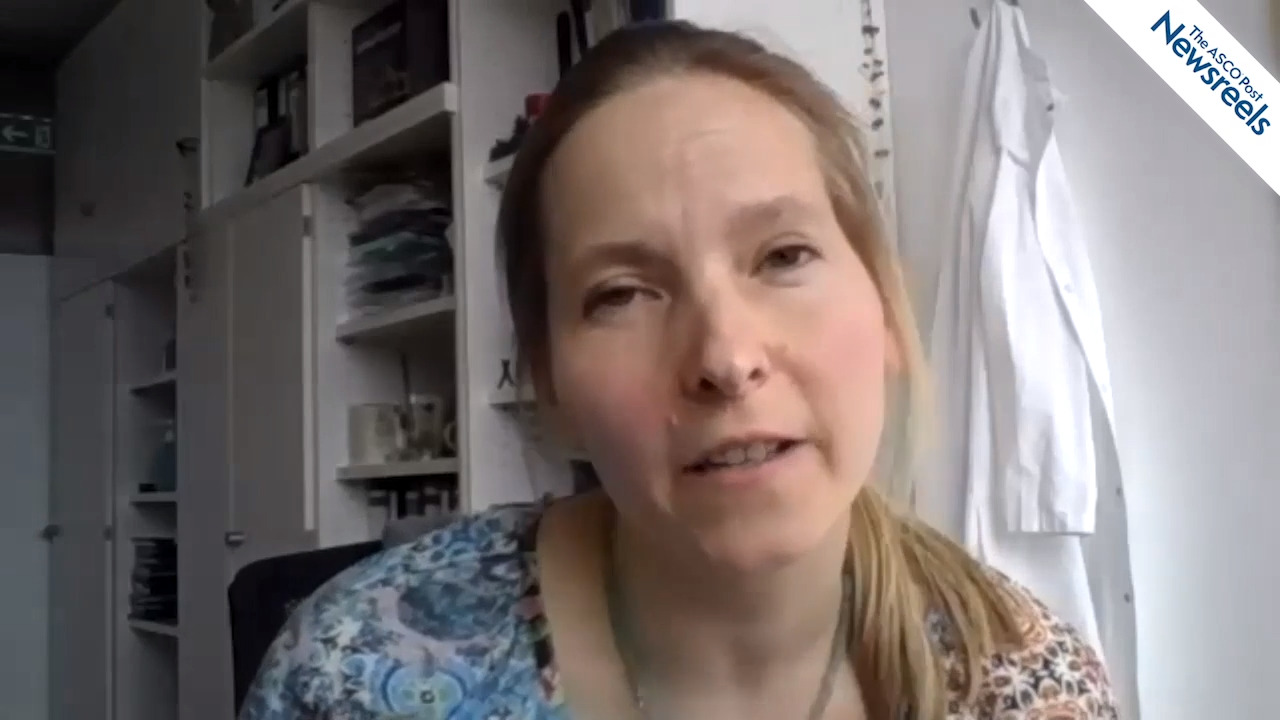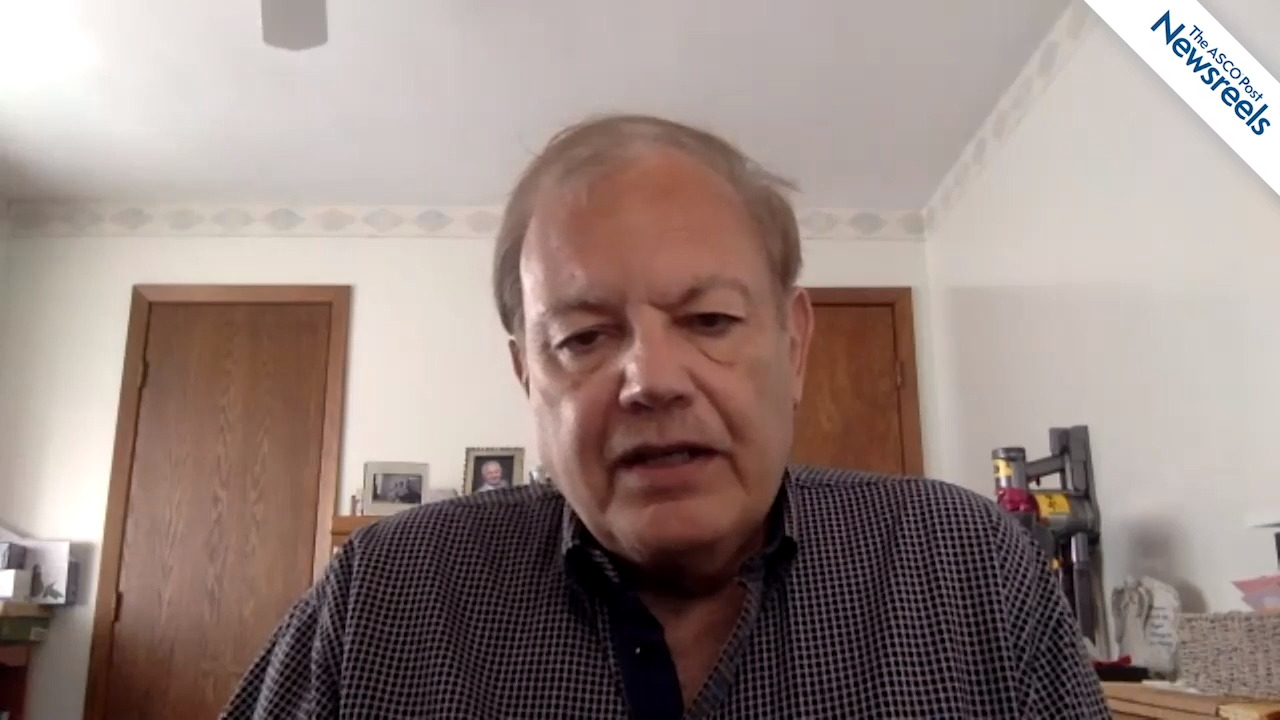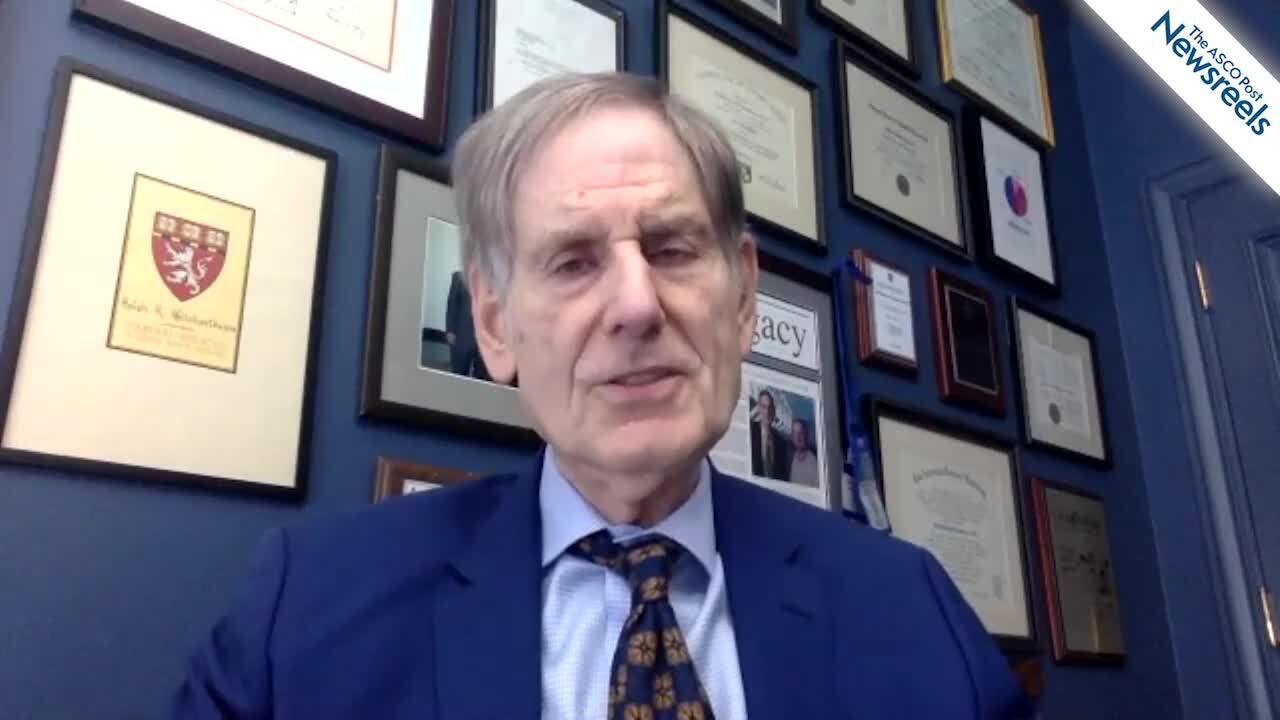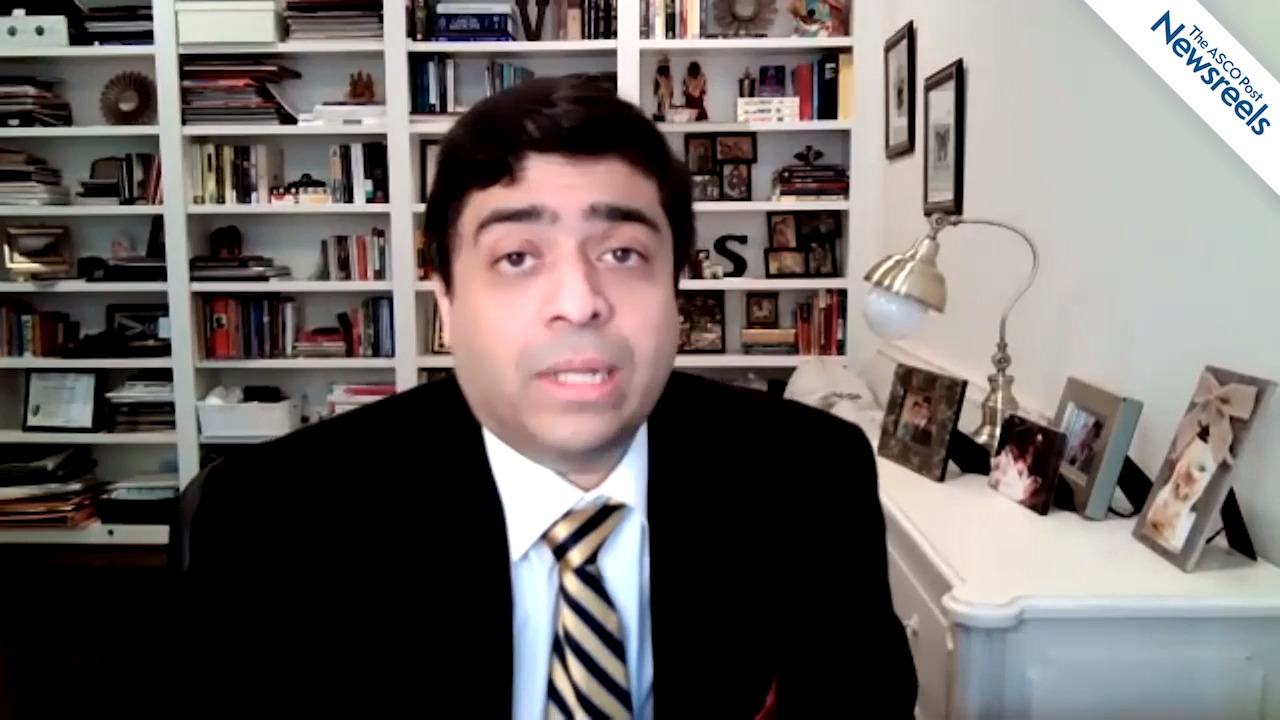Linda T. Vahdat, MD, MBA, on Triple-Negative Breast Cancer: Targeting the Tumor Microenvironment
AACR Annual Meeting 2021
Linda T. Vahdat, MD, MBA, of Memorial Sloan Kettering Cancer Center, discusses results of a phase II trial designed to test the concept that targeting the tumor microenvironment by depleting copper may prevent metastases, essentially disrupting the infrastructure that contributes to tumor spread.
The ASCO Post Staff
Jessica C. Hassel, MD, of University Hospital Heidelberg, discusses phase III results of a study that compared tebentafusp, a bispecific fusion protein, with investigator’s choice in patients with metastatic uveal melanoma. Tebentafusp nearly halved the risk of death among patients in the trial with this rare eye cancer (Abstract CT002).
The ASCO Post Staff
Dennis J. Slamon, MD, PhD, of the UCLA David Geffen School of Medicine, reflects on the ways in which breast cancer research pioneered the targeted treatment approach, as understanding of the basic biology of tumors deepened and new pathways were uncovered. He sees a future ripe with possibilities for new molecular targets to further improve outcomes for patients with breast cancer and other types of tumors.
The ASCO Post Staff
Ralph R. Weichselbaum, MD, of the University of Chicago, discusses oligometastasis as a part of the metastatic spectrum where ablative therapies, such as surgery or stereotactic body radiotherapy, may be curative alone or with systemic agents, as well as some potential biomarkers to guide treatment selection.
The ASCO Post Staff
Michel Sadelain, MD, PhD, of Memorial Sloan Kettering Cancer Center, discusses the challenges in developing CAR T-cell therapy, as well as the progress being made, such as creating hybrid CAR and T-cell receptors that should enable T cells to recognize much lower levels of antigens. The field, he says, is poised to take on a range of solid tumors to extend the successes in hematologic malignancies.
The ASCO Post Staff
Vivek Subbiah, MD, of The University of Texas MD Anderson Cancer Center, discusses data on selpercatinib that showed promising activity across a variety of RET fusion–positive cancers, including treatment-refractory gastrointestinal malignancies. This analysis highlights the need for genomic profiling to identify actionable oncogenic drivers.





